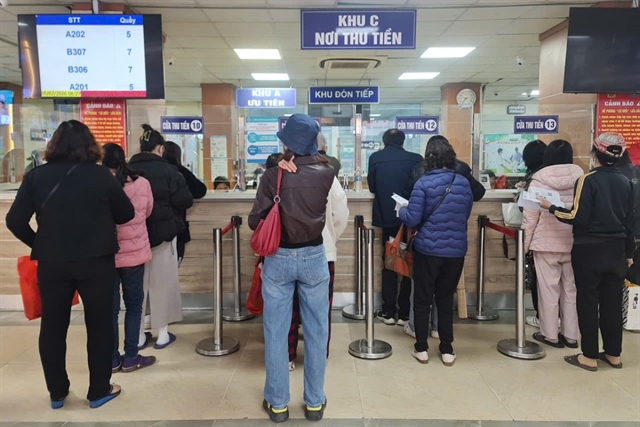 Society
Society

Rapid urbanisation and a rising population were two of the difficulties facing the water sector, experts said at a conference held in the capital on Tuesday.
| ||
| Rapid urbanisation and a rising population were two of the difficulties facing the water sector, experts said at a conference held in the capital on Tuesday.— VNA/VNS Photo |
HÀ NỘI — Rapid urbanisation and a rising population were two of the difficulties facing the water sector, experts said at a conference held in the capital on Tuesday.
“The increasing urban population was leading to large investment demands, but limited financial resources were causing serious challenges,” said Nguyễn Hồng Tiến, vice chairman and general secretary of the Vietnam Water Supply and Sewerage Association at the Việt Nam-Germany Water Forum in Hà Nội.
“ODA is falling and soft loans are becoming harder to find, so it is becoming increasingly difficult to access capital”, Tiến said.
To meet the demand of clean water supplies by 2020, we needed about VNĐ57.6 trillion (US$2.57 billion), said Tiến.
As of this year, the country’s urbanisation rate was approximately 38.4 per cent with 828 cities and towns nationwide.
“Water supplies have not kept pace with the urbanisation process,” said Tiến.
“Drinking water coverage, especially in small towns, is still low at about 70 per cent,” he said.
Storm water, brackish water and seawater were all potential, but the high cost of processing them was putting off investors.
According to Prof. Nguyễn Việt Anh, director of the Institute of Environmental Science and Engineering, water tariffs in Việt Nam were low and not enough to recover investments or upgrade systems.
In terms of wastewater management, the expert said that most urban sewer and drainage networks were connected and failed to deal with the waste.
Investment for urban and wastewater management stood at about US$20 million per year, 80 per cent of which came from ODA and the rest from the State budget.
To meet the goal of supplying enough clean water in a safe and efficient way, Anh suggested the sector should implement risk management, early warning and response, online monitoring and pollution control systems.
Drainage, wastewater treatment
Speaking at the forum, Vice Chairman of the Hà Nội People’s Committee Nguyễn Thế Hùng called on German investors to join the capital city’s projects on drainage, wastewater treatment and improvement of the local environment.
German Ambassador to Việt Nam Christian Berger said his country once faced river and lake pollution like Vietnam.
To deal with the problem, it applied a series of measures, including wastewater discharge fee, water use standardisation and water source protection, he said, noting that to date, 82 percent of surveyed Germans are pleased with local tap water quality.
The diplomat stated Germany, housing hundreds of companies operating in wastewater management and treatment, is willing to support Hà Nội and Việt Nam in technology investment for environmental protection, wastewater treatment and clean water sources building.
He hoped the forum would connect Vietnamese and German businesses and help them learn about their markets’ demand for future investment and partnerships.—VNS